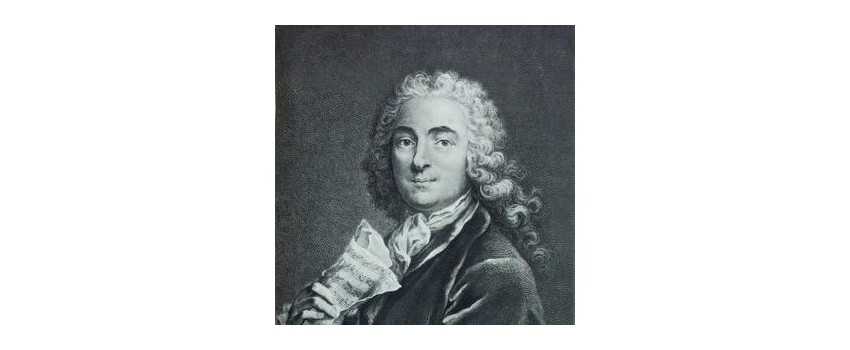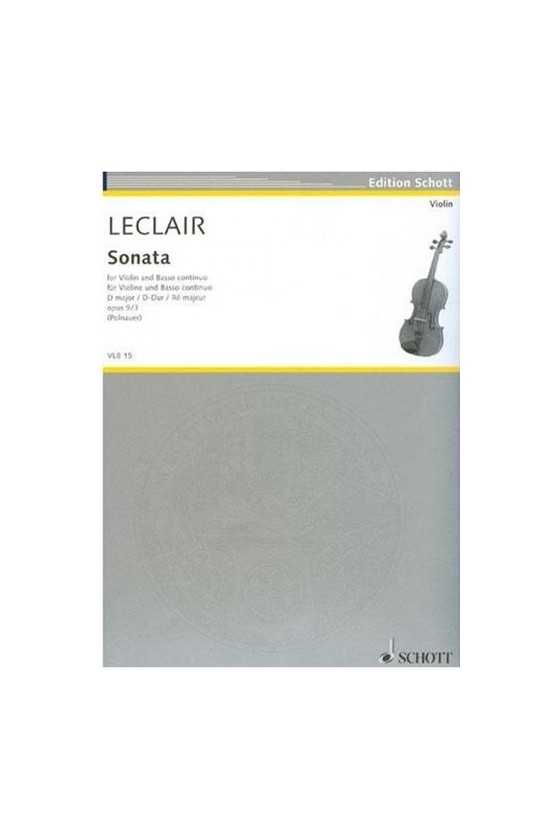Leclair, Jean-Marie
Jean-Marie Leclair, born on 10th May 1697, was a significant figure in the development and growth of French violin music during the 18th century. His unique blend of elegance, harmonic vocabulary, and orchestral composition made him one of the most influential composers of his time.
Early Life and Influences
Jean-Marie Leclair's journey into the world of music began with his talent as a dancer. His skills brought him from Lyons to Italy, where he had the opportunity to practice the violin with Giovanni Battista Somis, a student of Corelli. This experience would shape his future as a violinist and contribute to his distinct style. Leclair returned to France and settled in Paris, where he composed music for the theater and gained recognition for his violin compositions.
Notable Compositions
Leclair is best known for his violin music, particularly his first two published sets of violin sonatas. His First Book of Sonatas for Violin with Basso Continuo, dedicated to Monsieur Bonnier, showcased his originality and complexity of execution. Leclair's Second Book of Sonatas for Violin and Traverse Flute paid homage to Bonnier, who had become his patron. These works stood out in France for their technical prowess and musical sophistication, earning Leclair the nickname "Corelli de la France."
In addition to his violin sonatas, Leclair composed concerti and duo and trio sonatas. His twelve concerti, particularly his opus 7 number 3, displayed his stylistic and formal influence from Vivaldi. Leclair's compositions featured a combination of Italianate rhythms and French-inspired lilting airs and moderate-tempo dances. The violin took center stage in his works, showcasing Leclair's mastery of violin technique through arpeggios, double and triple stops, and virtuoso passagework.
Career and Recognition
Leclair's career as a violinist and composer flourished in Paris. He became a frequent performer at the "Concert Spirituel," the first public concert venue in France. His accuracy and elegance captivated audiences, earning him a devoted following. In 1734, Leclair was elected Premier Symphoniste du Roy and dedicated his Third Book of Sonatas to Louis XV as a token of appreciation.
However, Leclair's career was not without challenges. Jean-Pierre Guigon, a rival violinist and former student of Somis, emerged as a formidable competitor. The two engaged in artistic jousts, with their contrasting performing styles captivating audiences. The rivalry eventually took its toll on Leclair, leading him to resign from the king's service in 1736. Despite his departure from the "Concert Spirituel," Leclair's works continued to be performed by his students, showcasing his lasting influence.
Personal Life and Tragic Demise
Leclair's personal life was marked by both professional success and personal struggles. He married Louise Roussel, an engraver who worked on his Second Book of Sonatas, but their marriage eventually ended in separation. Leclair found solace in the company of fellow musicians and patrons, including the Bonnier family and Andre Cheron, his counterpoint teacher.
In 1764, tragedy struck when Leclair was assassinated, most likely by his nephew, who was also a violinist. The circumstances surrounding his death remain unclear, despite a thorough investigation. Leclair's untimely demise shocked the musical community, with one columnist describing the perpetrators as "monsters who belonged neither to their country nor to the century." The legacy of Jean-Marie Leclair lives on through his compositions, which continue to be celebrated for their technical brilliance and musical depth.
Legacy and Influence
Jean-Marie Leclair's contributions to French violin music cannot be overstated. His commitment to originality and technical excellence paved the way for future generations of composers and performers. While he drew inspiration from Italian composers like Corelli and Vivaldi, Leclair's compositions bore his unique French touch, blending elegance with complexity. His works continue to be studied and performed, ensuring that his legacy as a pioneering figure in French violin music endures.
Conclusion
Jean-Marie Leclair's life and music leave an indelible mark on the history of French violin music. From his early influences in Italy to his tragic demise, Leclair's journey was one of artistic brilliance and personal struggles. His violin compositions, particularly his sonatas and concerti, showcased his technical mastery and musical depth. Despite his untimely death, Leclair's legacy lives on through his lasting influence on the French musical landscape.




